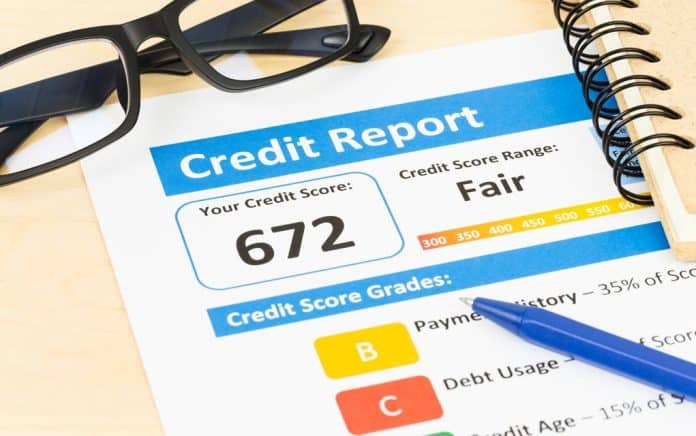
(FinancialHealth.net) – Your credit score is one of several factors that go into determining final approval on a new line of credit. If you happen to have something negative on it, like a late payment or a past bankruptcy, it can impact your application.
So, how long does information like that linger? The answer may surprise you.
When Will Negative Information Be Removed?
It’s important to identify positive and negative information on your credit report. Positive information includes payments made on time and loans that are paid off in full. Both positive and negative data is reported to the three main bureaus — Equifax, Experian and TransUnion.
Negative information includes late payments, collections, judgments and bankruptcies. Most derogatory credit information such as a default judgment or unpaid collection can stay on a report for seven years. For something like a Chapter 7 bankruptcy, it takes 10 years to fall off of a report.
Fixing an Error
It’s important to review your credit report regularly. You are entitled to a free tri-merged credit report (a single report with data from the three main bureaus) once per year, or after being denied credit approval.
After a careful review, you may notice errors or misinformation. Because these can lead to a lower credit score, and in turn, loan refusal, it’s important to get things cleared up as soon as possible. As a starting point, follow these simple steps:
- Gather your paperwork and account information to provide proof of payment or resolution.
- Contact the original creditor and request that they report the information accurately and request proof of their records.
- File a dispute with the credit reporting agency for inaccurate or false information. Be sure you have documentation to back up your claim.
Most information should be cleared up within a month or so, but it may take time for your score to improve. Keep in mind that while paying off a collection account you owe is important, unlike erroneous information, the data will still remain on your credit report for seven years.
Improving Your Credit Rating and Report
Negative information lingering for seven years doesn’t mean your credit has to suffer that entire time. Moving forward, take steps to improve what’s on your credit report. One way is by diversifying your credit with revolving installment loans, credit card accounts, auto loans and a mortgage. Other things that can help include:
- Meeting due dates on all revolving credit accounts
- Not over-extending lines of credit
- Paying down existing debt
- Avoiding too many new accounts or lines of credit
It’s also important to not close an old credit card account. This could lower your available credit and negatively affect your credit utilization ratio, which is the relationship between your total credit limits and how much you are actually using.
There is no quick fix for developing an impeccable credit score and getting rid of negative information. It takes hard work and time to make positive strides in the right direction. Awareness of what’s on your report keeps you in the know when it comes to your future financial endeavors.
~Here’s to Your Financial Health!
Copyright 2020, FinancialHealth.net





















